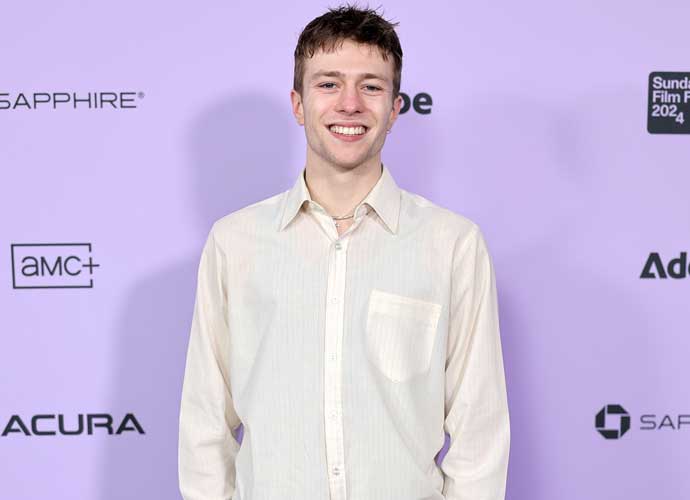EXCLUSIVE VIDEO: Ruaridh Mollica & Mikko Makela On Their LGBTQ Sundance Film ‘Sebastian’
In an exclusive uInterview, Ruaridh Mollica and Mikko Makela open up about their new Sundance film, Sebastian.
Sebastian follows the secret double life of Mollica’s character, Max, who assumes an alias and begins a career as a sex worker to inspire his first novel.
Makela, who directed the film, said that he wanted to create something that did not “problematize sex.”
“Sex was such an important part of the story, the power of sexuality and the empowering potential of self-discovery through sexuality,” Makela told uInterview founder Erik Meers. “I think we’ve seen so many sex worker films and portraits; some are really amazing, inspiring films. But sex work is still problematized and seen as a result or cause of trauma. I wanted to make a film with a character for whom sex work was a conscious choice rather than something done for lack of choices or economic prerogative.”
Mollica said that his character’s internal battle with his secret life adds to a bigger message about alienation and loneliness.
“I think at the start, the sex work is very much about pursuing the truth of his writing, he’s writing this novel and wants to research it in the most truthful way possible,” Mollica said. “As time goes on, things get muddied with his personal life and Max begins to learn that he enjoys it, maybe in a way that he didn’t think he would. That kind of develops over time and his personal feelings and journey clashes with the literary journey. It’s this battle between the truth of the art and what you want to work on, what you want to develop.”
Mollica said that Max’s alias reflects the character’s inability to be his true self.
“He writes under the alias of Sebastian. Even though it is something he is living truthfully, it is something that he is still afraid to own,” Mollica explained. “He is someone who would die for his art and he’s inspired by these authors who write about their lived experiences in the most authentic, heartfelt way.”
When asked about the portrayal of sex in the movie, Makela said that it was “part of the film’s DNA from the beginning.”
“From my point of view, I had experience crafting sex scenes for my debut feature, so I wasn’t as scared of kind of approaching them. They were already in the script, I had written them out in a lot of detail because they do so much story and character work,” Makela said. “I wanted to approach them in the philosophy of the film, as they are the evolution of Max’s character but also the content for his novel, so there was no question about whether they are necessary or anything like that.”
Mollica said that the idea of filming these intimate scenes was more intimidating than actually shooting them.
“I hadn’t had a lot of experience filming these scenes before,” he explained. “Once we started doing it and digging into the script and figuring out that it really was a study of the character and the relationships and what he is going through. The sex wasn’t like, ‘Oh my god, they’re having sex,’ it was just like everyone has sex, it was just a very frank and honest depiction of that… When I first watched the film, I was comforted by how easy and intellectual the sex scenes felt, they didn’t feel raunchy and crude.”
Throughout the film, Max begins to learn about his clients and forms connections that go beyond his work, which both Mollica and Makela hope inspire a larger conversation about the industry.
“I think he’d always gotten something artistic out of it, but I don’t think he realized the interactions with his clients could actually be something much more deep and heartfelt than just the sex,” Mollica said. “That companionship and love is something that can be formed and bring people together in a way that maybe Max hadn’t realized or talked about before. That’s a really beautiful journey that the character goes on, discovering that sex work and these meetings with clients are more than just sex and pleasure, but also knowing that that’s still a part of it and finding joy in both aspects of it.”
RELATED ARTICLES
Get the most-revealing celebrity conversations with the uInterview podcast!










Leave a comment